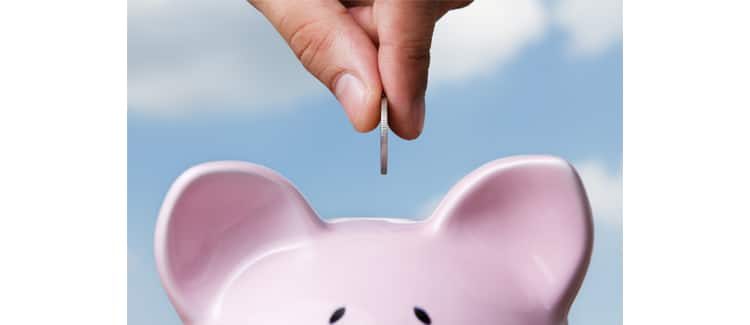Deductions Under Section 80C Could be Reversed
The tax deduction limit under section 80C is Rs 1.5 lakh. Section 80C lists down categorically all the items that qualify for tax benefits. Individuals and entities can apply for deductions and exemptions of income tax by investing or subscribing to schemes that are eligible for deduction(s) under 80C. Deductions under 80C encourage long-term saving behavior and taxpayers who can invest for more than specified number of years in the listed schemes can derive the tax benefits under section 80C.
In several schemes, early withdrawal before the specified number of years reverses the deductions claimed in earlier years by the taxpayer and in the forthcoming year, the entire deducted amount claimed is treated as income.
The taxpayer may benefit for several tax years by applying deduction under 80C, yet all these benefits can get reversed as per certain conditions mentioned under section 80C. Let us consider here these conditions singularly:
Home loan repayment condition for deduction under 80C
Buying a home with a home loan can fetch you tax benefits under section 80 C although subject to certain conditions. The items that qualify for deduction under 80C include deductions on invested money in listed plans and schemes and also a deduction for payment of principal amount component of the home loan. The taxpayer can also claim deduction for payment of interest component of home loan up to Rs 2 lakh, however this further deduction is not under section 80C. Deduction under 80C on home loan repayment is only for principal part, deduction for payment of interest part of home loan can be claimed under section 24B.
All salaried people dream of buying their own home. The amount spent as rent can be allocated as EMI. Salaried people are eligible for a tax deduction on HRA or rent under section 10 (13 A) of the income tax act. However, if the salaried employee plans to switch from a rented house to own house bought under home loan plan, then the taxpayer would become eligible for tax deduction benefit under section 80C and section 24 B of the Income Tax Act. As per section 80c, the tax benefit for house property is only applicable for those who take a home loan to purchase a house. Deduction under 80C for house property is not applicable for taxpayers who buy residential property entirely by down payment or receive home property as a gift.
Home loans can be taken from banks. Banks recover home loan amount over a long duration of ten, fifteen or twenty years in the form of EMI. EMI are equated monthly installments and comprise principal and interest repayment part. While claiming tax deductions under section 80 C, the tax payer can file deduction only for the principal part payment of the EMI. Deduction on interest part of EMI of home loan can be claimed under section 24B. The taxpayer can take help of bank for segregation of principal and interest part of EMI that has been paid by him/her for the whole financial year.
Home loan deduction under 80C is only applicable when the home is retained for over five years. If the house owner sells the house within five years after acquiring possession then as per section 80C regulations, the entire deducted amount claimed in previous years will get reversed and be treated as income for the next financial year. If the property is sold before five years from acquiring the property, not only would the deducted amount claimed on home loan repayment would get reversed, but the amount received on house property sale would also be taxed.
Section 80C deduction on a home loan is applicable from the time of completed house and not for the time house is under construction. If tax payer has repaid any principal and interest amount in the construction phase then as per deduction(s) under 80C regulations, the tax benefit for principal payments in construction phase can be claimed in installments only from the year in which the house is completed, and possession papers have been handed over to the owner. Tax benefits of interest payments during construction phase can also be claimed under section 24 B post completions, in five equal installments.
EPF contribution condition for deduction under 80C
Salaried people have EPF account or the employee provident fund account. Each month a percentage of salary gets deducted and is deposited into the employee’s EPF account. The same amount as what is deducted from employee’s salary is contributed by the employer and deposited into employee’s EPF fund. EPF account earns interest at the rate of around 8 to 9 %. EPF account serves as long term savings, and amount corpus can be withdrawn at retirement. If employee changes firm, EPF account can be transferred. EPF account also has provisions for withdrawing money as a loan to meet contingency situations or for meeting the expenses towards the fulfillment of life stage responsibilities.
Salaried individuals derive long-term savings benefit from EPF fund as well as tax benefits under section 80C of the income tax act. The amount contributed by the employee into EPF account can be deducted from income bases to bring down the tax burden. Also, any amount withdrawn from EPF account is tax-free. If the loan is taken from a EPF account, the same qualifies for tax deduction as well. The amount received on the closure of EPF account upon retirement is entirely tax-free.
Deductions applicable under section 80C on EPF account provide much relief to taxpayers. However, taxpayers need to exercise one element of caution. They would need to treat their EPF account as a long-term reservoir of savings. If a taxpayer withdraws entire EPF amount before five years of opening the account, deductions claimed on EPF account would get reversed under section 80 C of the Income Tax Act. Section 80C treats the reversible deducted amount as income and requires that the taxpayer file the entire deducted amount as income in the next filing year.
However if EPF account is closed, and money is withdrawn before five years to meet emergency condition like job loss, physical inability, death of account holder (in which case nominee withdraws), then as per deduction under 80C regulations the tax deduction cannot be reversed and neither the money received from account closure be taxed.
Life insurance policy contribution for deduction under 80C
All family people need life insurance for providing for the dependent members in their absence. Section 80C permits up to Rs 1.5 lakh deduction. The taxpayer may claim the deduction under one scheme or multiple schemes that qualify for deduction under 80C. Salaried taxpayers first of all seek to insure their lives so that due to their sudden demise if salary income stops then the family may continue to support themselves with life insurance cover. Under section 80C premiums paid towards life insurance schemes can be deducted from the taxable income base. Life insurance schemes can be pure life insurance schemes with no survival or maturity benefits. However, life insurance schemes can also be unit linked or mixed insurance schemes that provide survival or maturity benefit. Under section 80C, all categories of life insurance product contributions are applicable for a tax deduction. Moreover, any kind of money withdrawn or received from life insurance account is exempt from any type of tax.
Deduction under 80C on life insurance products includes deductions for premium component paid for life cover and also premium component paid for the investment. Several investment schemes qualify for tax deductions under section 80C, and linked life insurance plans are among these. There are also total life cover plans which include life cover, investment linkages as well as a health plan. The premium component paid towards health cover by tax payer who has taken up a total life cover plan is not eligible for tax deduction under section 80C. However deduction for contribution towards health cover can be claimed under section 80 D.
Deduction under 80C regulations can benefit taxpayers if they continue with life insurance scheme for at least two years. If tax payer discontinues or surrenders life insurance policy before two years then under section 80C regulations the entire amount claimed in previous years as a deduction will be reversed and treated as income in the forthcoming financial year. In addition to this, any benefit amount received from life insurance scheme discontinued before completion of two years will also be taxable as per deduction under 80C guidelines.
Education expenses contribution condition under section 80C
Taxpayers having school going children can claim tax deductions for maximum two children under section 80C provisions. If the taxpayer has a third child then tax deduction can be claimed as per section 80C guidelines by the taxpaying spouse. The education expenses that qualify for deduction under 80C can be only tuition fees expenses. Admission fees and any other fees paid apart from tuition fees are not eligible for tax benefit as per deduction under 80C regulations. Many taxpayers might confuse section 80E provisions for tax benefit on education loan for section 80 C provisions that include tax benefits for educational expenses. If a taxpayer wants to claim deductions on repayment of education loan then the same can be applied under section 80 E and not under section 80 C. Tax deductions claimed for educational expenses under section 80 C can get reversed if claimed for more than two children or if deduction is claimed for expenses other than tuition fees.
Section 80 C condition for PPF contribution deduction
Many people may not have a regular employment contract, or their employer may not offer them EPF account. People with no EPF account may open PPF account or public provident fund account. Public provident fund account contributions are eligible for tax deduction under section 80 C. The PPF account works in the same way as EPF account and earns interest of the same rate as EPF account. PPF account provides a means of long term savings accrual as well as savings on tax as per regulations of deduction(s) under 80C. To realize the tax deduction benefits the PPF account cannot be closed before completion of five-year tenure. If tax payer closes PPF account before the completion of five years of the scheme, then as per section 80C guidelines the deductions claimed in earlier years will be reversed and treated as income in the next tax year.
Section 80 C condition for Senior Citizen scheme deduction
Senior citizen schemes are taken up by individuals who want to build a lump sum corpus or annuity corpus by the time they retire. As per deduction(s) under 80c guidelines, senior citizen schemes contributions qualify for tax deductions. The regular premium amount paid by the tax payer for senior citizen plan can be deducted from the taxable income base. Also, under section 80 C, any amount received from senior citizen account by taxpayer is exempt from all kinds of taxes. However, according to the deduction(s) under 80C guidelines, if the senior citizen scheme is discontinued or surrendered before completion of the five-year tenure, then the prior deductions claimed gets reversed and is treated as income for the next tax filing year. Also, the amount received on the closure of senior citizen scheme account before five years is taxable under section 80C.
Section 80C condition for ELSS scheme investment deduction
ELSS schemes or equity-linked savings schemes are eligible for tax benefits under section 80C. As per the deductions under 80C guidelines, premium amount contribution for ELSS scheme can be deducted from the taxable income base. Also, under section 80C, returns and gains received from ELSS schemes are exempt from taxes. ELSS schemes have a lock-in period of three years and the taxpayer needs to continue with ELSS scheme for at least three years. If the ELSS scheme is discontinued before the lock-in period, the tax deductions claimed earlier get reversed.
Helpful Resources: Online Income Tax Calculator
˜The insurers/plans mentioned are arranged in order of highest to lowest first year premium (sum of individual single premium and individual non-single premium) offered by Policybazaar’s insurer partners offering life insurance investment plans on our platform, as per ‘first year premium of life insurers as at 31.03.2025 report’ published by IRDAI. Policybazaar does not endorse, rate or recommend any particular insurer or insurance product offered by any insurer. For complete list of insurers in India refer to the IRDAI website www.irdai.gov.in
*All savings are provided by the insurer as per the IRDAI approved insurance plan.
^The tax benefits under Section 80C allow a deduction of up to ₹1.5 lakhs from the taxable income per year and 10(10D) tax benefits are for investments made up to ₹2.5 Lakhs/ year for policies bought after 1 Feb 2021. Tax benefits and savings are subject to changes in tax laws.
¶Long-term capital gains (LTCG) tax (12.5%) is exempted on annual premiums up to 2.5 lacs.
++Source - Google Review Rating available on:- http://bit.ly/3J20bXZ


- SIP Calculator
- Income Tax Calculator
- Compound Interest Calculator
- NPS Calculator
- Show More Calculator
Income Tax articles
Explore the popular searches and stay informed
- LIC
- Investment Plan
- Annuity Plan
- Child Plan
- Pension Plan
- ULIP Plan
- Child Investment Plan
- SIP
- LIC Calculator
- SIP Calculator
- SBI SIP
- ULIP Calculator
- Sukanya Samriddhi Yojana
- Best SIP Plans
- Retirement Planning
- SBI SIP Calculator
- HDFC SIP Calculator
- Sukanya Samriddhi Yojana Interest Rate
- NPS Interest Rate
- Deferred Annuity Plans
- SBI Annuity Deposit Scheme Calculator
- Immediate Annuity Plans
- Post Office Child Plan
- Prime Minister Schemes For Boy Child
- Government Schemes for Girl Child
- 50k Pension Per Month
- Atal Pension Yojana Calculator
- Best Pension Plan in India
- CIBIL Score
- 1 Crore Term Insurance
- Best Term Insurance Plan
- Term Insurance for Women
- Term Insurance for NRI
- Term Insurance
- Term Insurance Calculator
- Life Insurance
- Term Insurance with Return of Premium
- Whole Life Insurance
- Term Insurance vs Life Insurance
- What is Term Insurance
- Life Insurance Calculator
- 5 Crore Term Insurance
- 2 Crore Term Insurance
- 50 Lakh Term Insurance
- Term Insurance for Housewife
- Benefits of Term Insurance
- Term Insurance Terminology
- Medical Tests for Term Insurance
- Term Insurance for Self Employed
- Claim Settlement Ratio
- 10 Crore Term Insurance
- Term Insurance for Smokers
- 1.5 Crore Term Insurance
- Zero Cost Term Insurance
- Home Loan Insurance Calculator
- FIRE Calculator
- EMI Calculator
















